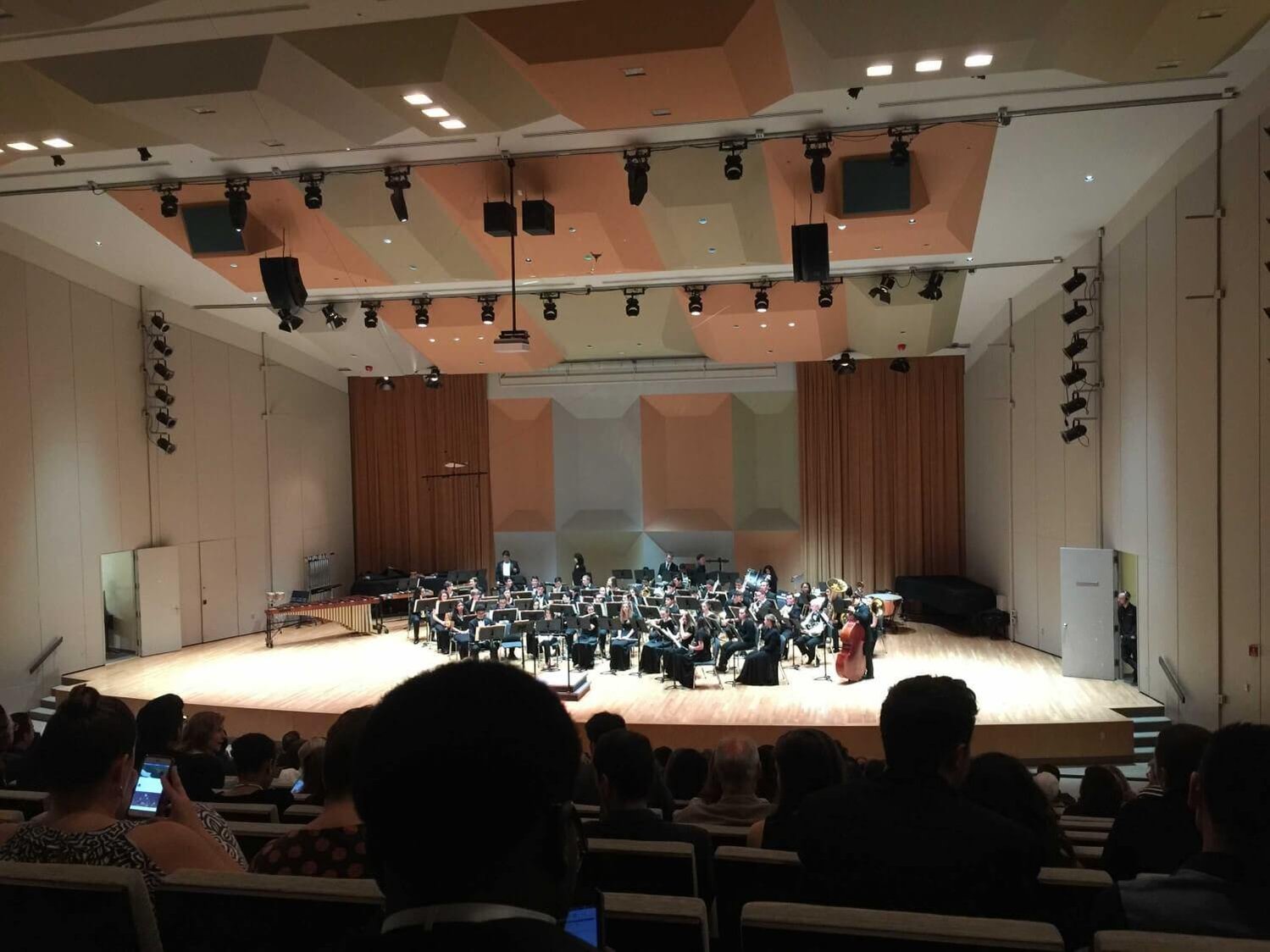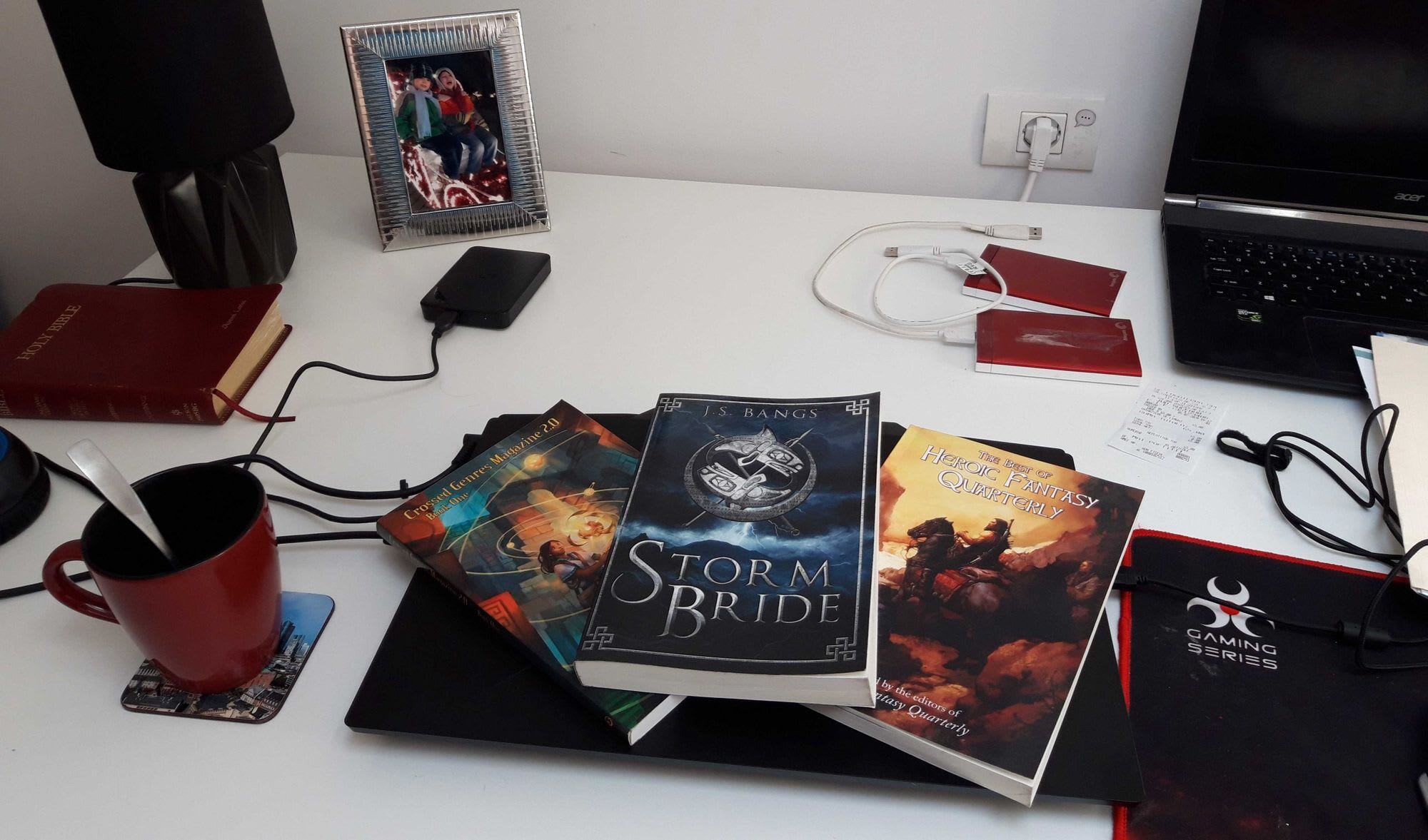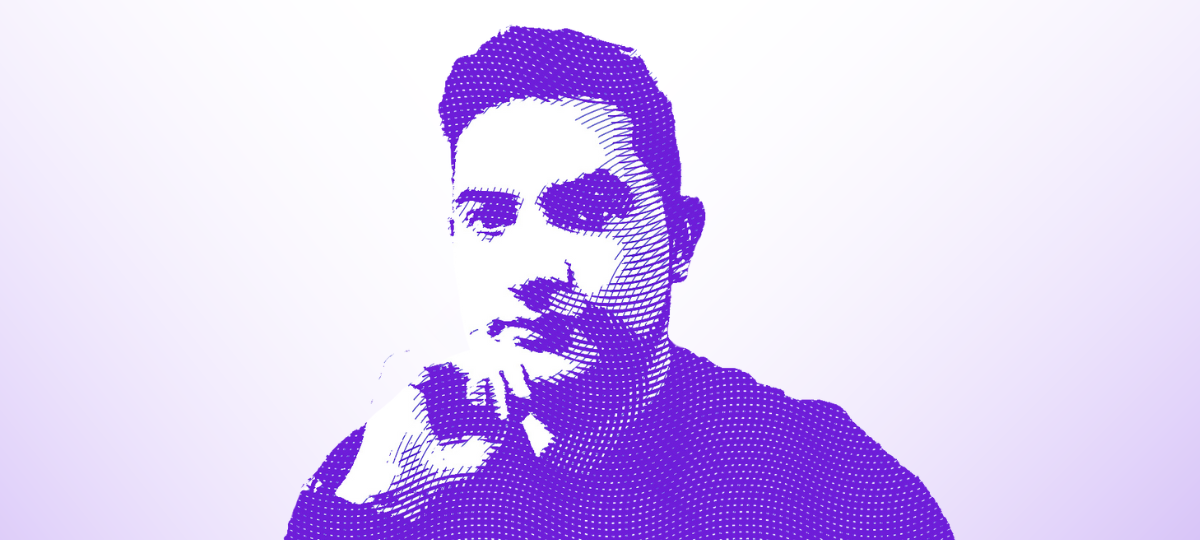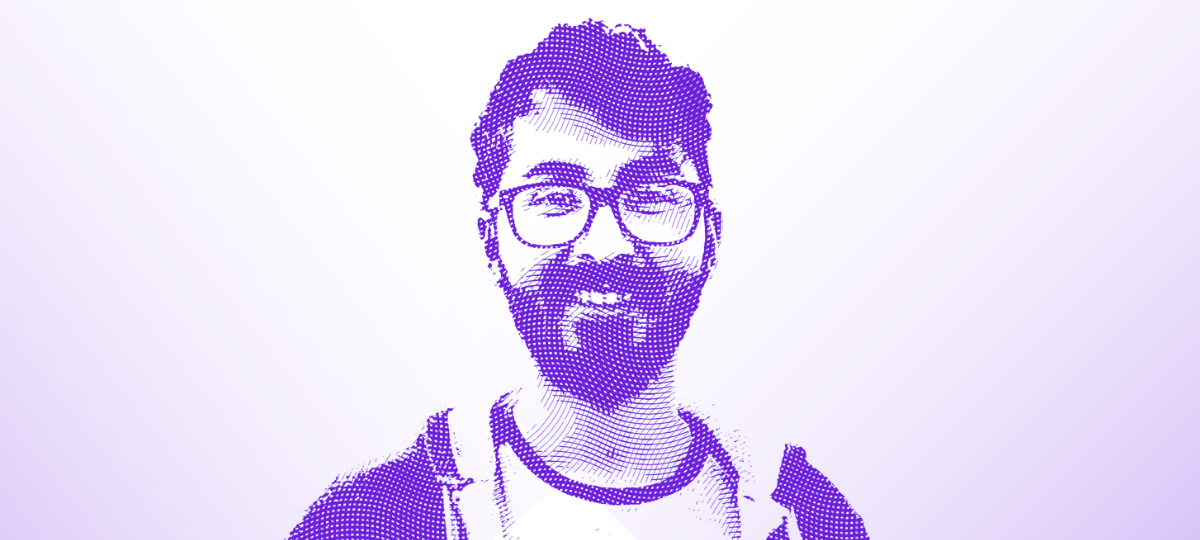Peter Correa on Playing the Saxophone at Berklee College of Music
By: Thomas De Moor
July 1, 2021 8 min read

Peter Correa has been a developer for several years and an X-Team developer for almost a month. But he wasn't always a developer. Before he turned to programming, Peter was a talented saxophonist. In this interview, we will discuss his passion for the saxophone, what the application process for Berklee College of Music was like, and why he turned to software engineering instead.
How long have you been playing the saxophone? And why did you choose it? It's a fairly unusual choice for an instrument.
I played actively for over a decade and was a performance major in undergrad. During childhood, my household wasn’t religiously or politically inclined. We were music aficionados instead. My mother brought her classic rock and disco, my father his syncopated salsa and bossa nova. Although I didn’t know much about instruments yet, the time to pick one came when I joined a band in middle school.
Against my mother’s wishes, my father said he'd buy me a brand new horn instead of going through the more common route of renting or borrowing a school-issued one. Thank God too, because those school ones were grimy and disgusting. So I thought hard about which instrument I saw myself with for the long haul.
It was a tiny identity crisis, like choosing your favorite House in Harry Potter. I knew I didn’t want to be a Hufflepuff or Ravenclaw... What would a Gryffindor play? Something difficult, a challenge. Something less common than a trumpet or percussion. Trombone was just one long tube, and clarinet was simply the wrong crowd for me.
As I walked the selection of instruments, I came across this unusual-looking horn. Its curvature was bizarre, the intricacy of the rods, tiny screws, and spring-loaded keys were fascinating. The size was appropriate. “This is it!” I thought. My decision was made. I went back home with the alto saxophone.
I expected this instrument to require plenty of time and patience to master, but I didn’t expect my mother to demand practicing the very same night when she discovered my father had opted for a fully paid new horn instead of going through the more economical route. “I haven’t even had class yet!” I told her. “If you want a new instrument, you begin now,” she replied. It was 8 pm. I'm sure the neighbors weren’t happy.
Quite the story. What do you like about playing the saxophone?
The saxophone is generally a very liked instrument. Most composers would give it prominent melodies and supportive harmonies. But an interesting aspect of music that not many instruments get to enjoy is the art of improvisation. This means you make up the music on the spot. You get to decide how this part of the song will sound like, as it features no one but you.
This is what separates the adults from the children. It’s easy to read what’s on paper, but when that’s taken away, what do you do? There are so many available notes to pick from, but there are only a handful of “right” notes to play, and every decision is coming fast. You must know which note to play several bars ahead, or else it's too late.
That sounds incredibly difficult. But what do you find the most challenging aspect of playing the saxophone?
The expectations. As humans, we judge in seconds. Everyone has a favorite saxophone solo, or at least a song that features one. We can thank the Big Bands from the ‘40s and the distinct style of the ‘80s for this. And with the addition of Mr. Saxobeat, the expectations keep on rising. But ultimately, like with all things, with practice and patience these expectations become easier to manage.
What's it like playing saxophone in a band?
I performed live all the time. It's a grade requirement when you’re studying, especially as first chair (lead saxophonist). I was usually featured and asked to solo. If my section wasn’t performing up to par while playing live, I would have to rehearse the other players. This included playing parts other than mine. Music I’ve never seen that I was expected to play correctly on the first try. It's called sight-reading.
I was a decent player, but this was always nerve-racking. I’d rather stand naked in front of a crowd. For some this feeling goes away, but it never did for me. Sweaty, slippery palms are a musician’s public enemy number one.
I played in a variety of ensembles, including jazz combos, outdoor marching bands, and pop groups. But my favorite was the wind orchestra. Firstly, because the air conditioning was guaranteed. But also because classical music involves so many more musicians, upwards of 100. Collaboration and coordination were necessary, else the entire ensemble would rip through its seams, fall apart, and end up on different parts of the page.
Usually, a conductor is present to act as a reminder of where in the music we are. Their role is to sync up the musicians. But when you’re surrounded by top musicians, the conductor simply isn't needed. My most memorable performance was when our conductor wanted us to be more attentive to one another. As an exercise, he removed himself from the performance and gave us only one downstroke of the baton, leaving the rest to us.
This meant that the entire orchestra relied on me, the first chair French horn, and one other player, the first chair trumpet, because that particular piece, Ye Bank and Braes o’ Bonnie Doon by Percy Grainger, heavily relied on our instruments.
This is a piece that changes tempo everywhere, so playing in sync was especially critical, but we, like the conductor-less Orpheus Chamber Orchestra, did it successfully. The connection formed through body language, aggressive eye contact, and musical expression can't be compared to any other art. I never knew you could say so much without a single spoken word.

Favorite saxophone players and saxophone songs?
When I speak with non-musicians, they’re astonished at how a saxophone player can be identified through just their timbre and unique choice of notes. But your identity, expressiveness, and hesitations are revealed through these subtle differences (just like any other art).
I have enormous respect for the greats like Charlie “Bird” Parker, Sonny Rollins, who I had the pleasure of meeting, Getz, Adderly, Coleman, Sanborn…. just not Kenny G. God no. Leave him for the radio listeners.
But my personal favorite is someone whose sound has always had a striking difference from the rest. There's so much emotion in his music. I’m speaking of John Coltrane. His reputation for musicality and technical know-how rivals no other player. You can read entire books on Giant Steps alone... one of his most challenging songs and probably his most famous. Coltrane is a “heavy-hitter” and some find his later songs an acquired taste. When I want something more relatable, I gravitate towards Stan Getz.
Tell me about Berklee. It's one of the most prestigious music colleges in the world and you got in! What was the application process like?
I was a little reckless with my auditioning process. I didn’t give myself any alternatives. No safety net. There was only one choice for me and that was Berklee. Even stranger, I was auditioning as a classical saxophonist. Berklee is more of a jazz- and pop-driven institution. I was trying to enter their film composition program.
I had to submit several original compositions scored to film, as well as perform a piece of my choice, improvise over a 12 bar blues, and conduct a personal interview. I practiced the performance portion for over two years, because it carried the most weight for evaluating an applicant. After those two years of practicing, I took my first solo flight to Boston and mentally prepared myself to perform the Glazunov Concerto in E flat major, Op. 109.
This piece is a monster. Fifteen minutes of pure pain, being punched in the lips over and over. Glazunov was mean. He dipped his hands into a bucket of black ink and splattered several sheets of paper with it. It resembled a Jackson Pollack painting more than sheets of music.
The judges who determined my entry into the school were very suspicious about my choice. “Do you have any other pieces to perform?” they asked, with an implied “just in case” at the end of their sentence….“No,” I said. Their expression was as if had chosen my own death sentence. And sure enough, less than halfway through my performance, they cut me off.
“I messed it up,” I thought. My embouchure wasn’t tight enough, my fingerings were too slow, my sound was too airy. I was so terrible they didn’t want to hear more. I would have to go home and share the embarrassment with my family. And, living in a Hispanic household, failures are hard to swallow.
But, to my surprise, the judges showered me with affirmation. They were so curious about my mastery, they took out their horns and attempted to play the piece themselves. You know you’ve done well when a judge wants to play with you. I was happy, the hardest part was done. Everything else in the process was simply administrative. I knew I was in. My acceptance letter came shortly afterward.

But you decided not to attend. Instead, you became a professional software engineer. Why did you decide to become a programmer?
There are many things I know in life. But something that I still can’t articulate till this day is why I left music. Or why it left me, to be honest. I was good. I was expected to be a professional and notable. But I was stimulated by other things in life, and my thirst for being challenged continued in a different way. I was moving from being less creative to being more intellectually stimulated.
I guess this started when I was still an undergrad studying Music Theory while preparing to be a Film Composer. This involved conducting an analysis of the music. And as artsy music can get, at times the theory can become very intricate. I enjoyed this very much and wanted to continue applying this type of deductive thinking in my life. It satisfied me. Perhaps that's why I began to develop an interest in technology. I was always hesitant to go deep into tech. I knew it involved a lot of technical know-how and, at times, mathematics. HTML scared the jeepers out of me… Silly right?
It wasn’t until I worked at an Apple store that I got more insight into the realm of technology. I was surrounded by the most competent group of people I had ever met. They were all masters of their domain. A few Berklee grads worked there too, even. I worked at the Genius Bar repairing hardware and triaging software issues. Everyone there had a side hobby in tech outside of work. They were programmers, designers, hardware builders, etc. And they were all so incredibly bright. It made me even more curious about this line of work.
Moreover, the connection made when a person enjoyed or even bonded with a piece of tech always fascinated me. But it wasn’t until a few years after, after I built my first iOS app, that I realized it was time for me to make my casual relationship with technology into a full-blown marriage.
I really enjoyed the logical deductions that were involved and, what surprised me, the amount of creativity too. From that point, I knew I had found my long-term love. I'd already graduated from university, so I joined a bootcamp and formally began my training there. My separation from music was weird. I honestly don’t talk about it much. And I never formally gave my goodbyes, I still play and read music from time to time. I have no regrets.
Do you want to join a company full of motivating, talented developers like Peter? You can! X-Team is always looking for experienced developers. Send through your application today.
TABLE OF CONTENTS



